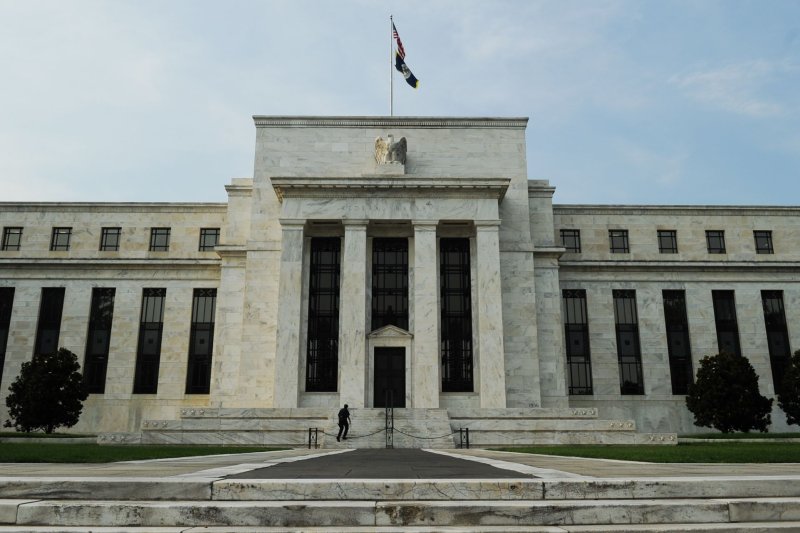The Bank Policy Institute sued the Federal Reserve on Tuesday on behalf of several banks and financial organizations citing a lack of transparency in the agency’s annual stress tests. File Photo by Alexis C. Glenn/UPI |
License PhotoDec. 24 (UPI) — A group of banks and financial organizations sued the Federal Reserve Tuesday over a lack of transparency in its annual stress tests.
The Bank Policy Institute, which represents some of the country’s leading financial institutions like JPMorgan, Citigroup, and Goldman Sachs, filed the suit with the American Bankers Association, the Ohio Bankers League, the Ohio Chamber of Commerce and the U.S. Chamber of Commerce joining.
The groups said while they understand the merits of the stress tests, they complain the current process fails the banks by producing “vacillating and unexplained requirements and restrictions on bank capital.”
“For years, we have highlighted serious concerns about the stress testing framework and the need for reform,” Greg Baer, president and CEO of the Bank Policy Institute, said in a statement.
“The current opaque regime, combined with the lack of clear standards for the global market shock and the operational risk charge, continues to produce capital charges that are inaccurate, volatile and excessive, resulting in reduced lending and economic growth.”
The Fed created the stress tests after the 2007-2009 “Great Recession” to make sure banks could hold up under a similar monetary crisis. The Federal Reserve conducted the first stress tests in 2011.
The Fed said on Monday it would hold public comments on “significant changes” to improve the transparency of the stress test and reduce volatility due to the “evolving legal landscape and changes in the framework of administrative law.”
Rob Nichols, president and CEO of the ABA, said his organization had long advocated for more transparency over the stress tests program.
“To meet federal law, the Fed should publish the supervisory models and stress scenarios and invite public comment, which would enable banks and the public to better understand and prepare for regulatory expectations, reducing uncertainty and promoting a fairer, more predictable regulatory environment.”
